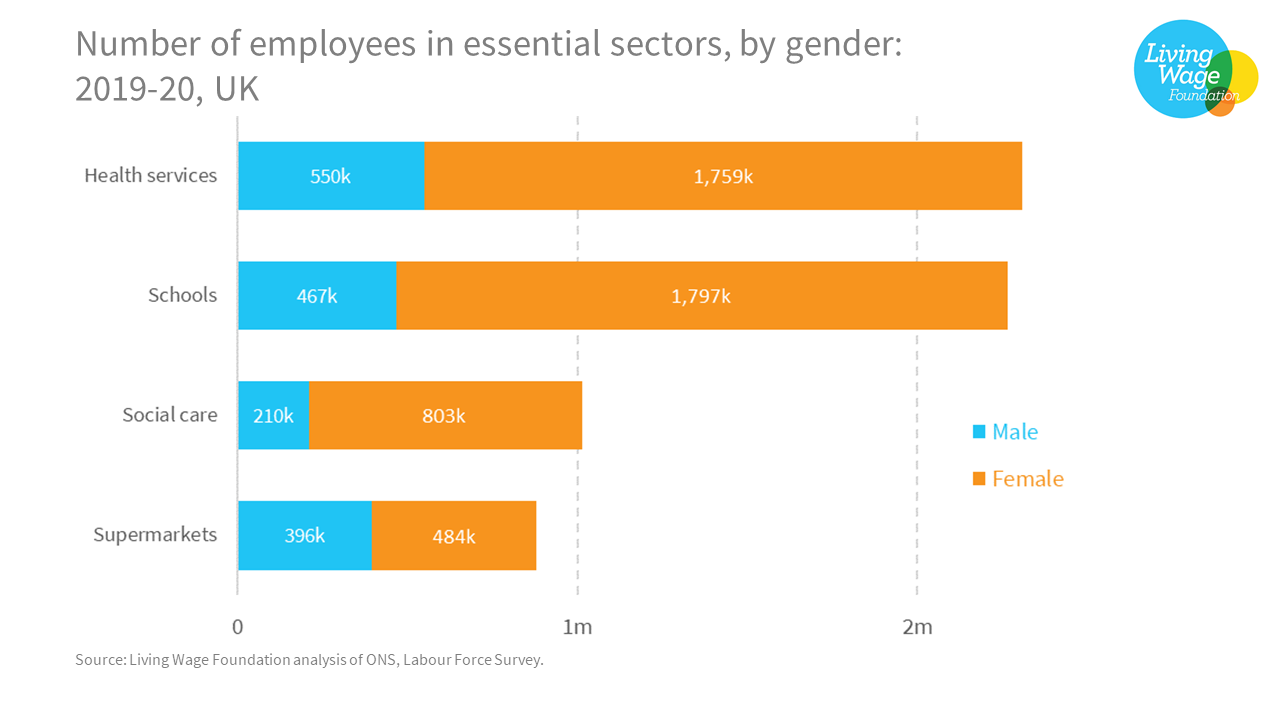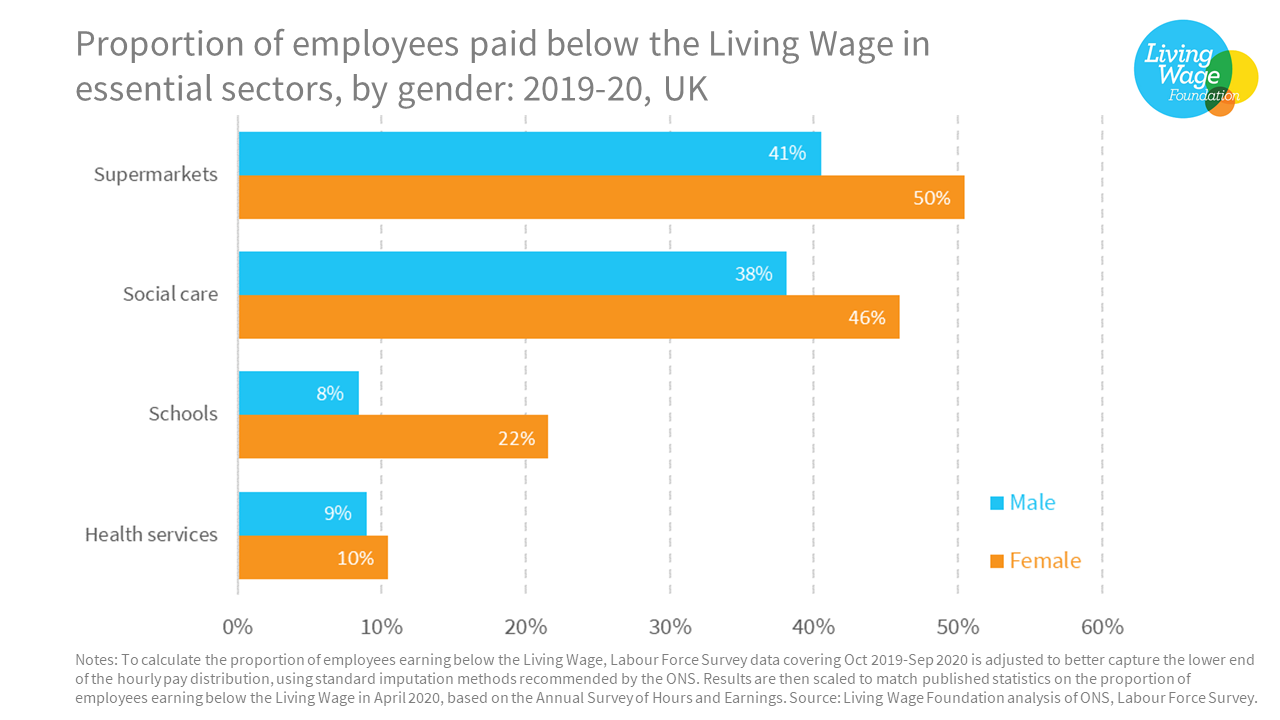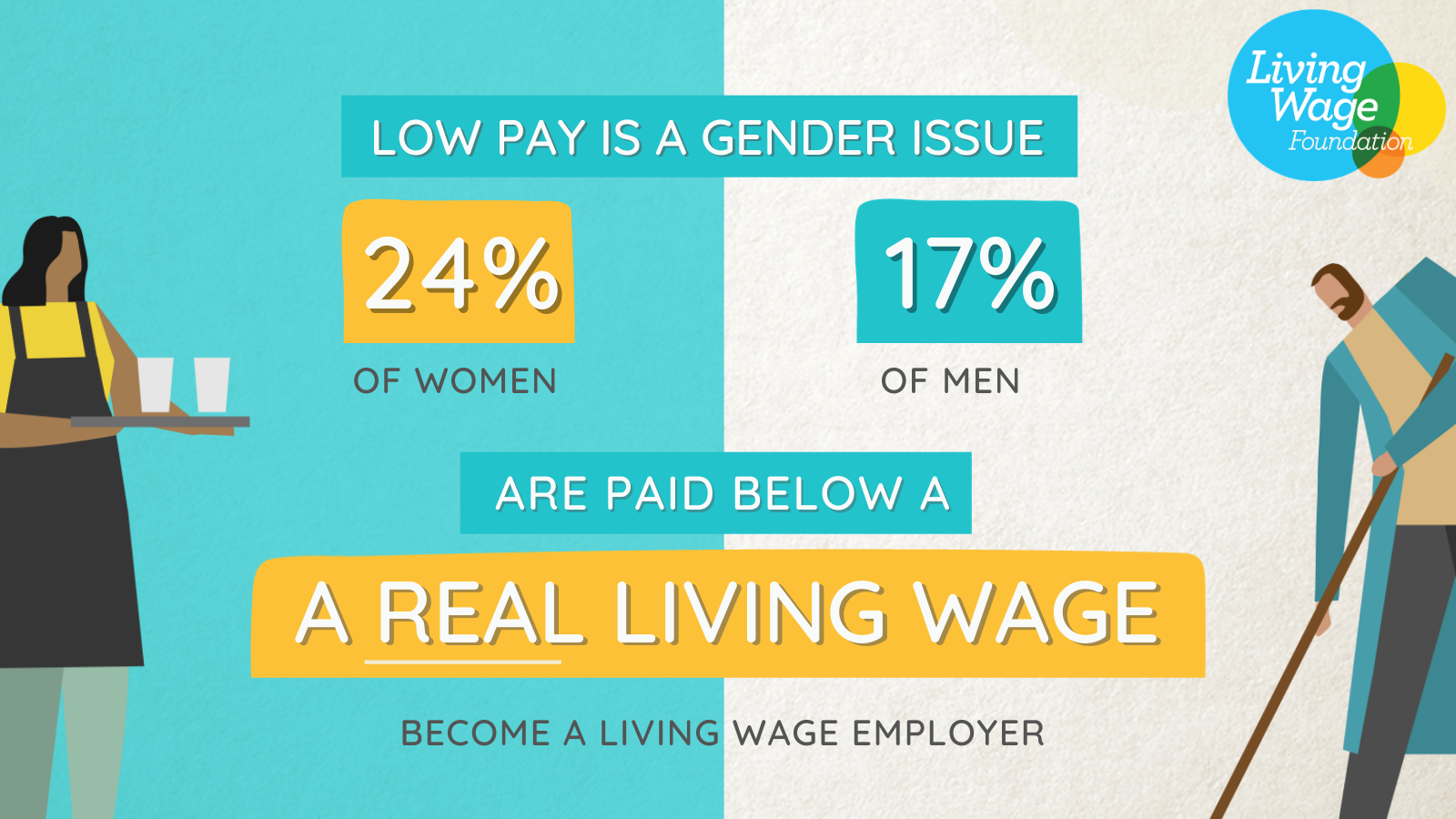As we mark International Women's Day, Maisie Caro from the Living Wage Foundation reflects on the fact that women make up the majority of key worker roles but disproportionately feel the impact of low pay.
In the 365 days since International Women's Day 2020, our lives have been turned upside down. But against the backdrop of upended livelihoods, unprecedented firsts and uncertain futures, the pandemic has shone a light on an uncomfortable truth. It's the low paid and insecure work largely done by women that has kept our society going in its darkest hour.
To seriously tackle gender inequality, we need to tackle low pay. This year marks the 20th anniversary of the living wage movement and over 7,000 leading employers have now signed up to pay the real Living Wage, an independently calculated rate based on living costs like food, clothing and bills. This means voluntarily committing to go further than the government minimum and paying employees - including outsourced workers like cleaners, 79% of whom are women - a wage that covers the real cost of living. Currently, the Living Wage is £9.50 across the UK and £10.85 in London.
Low pay is a gender issue. According to the Annual Survey of Hours and Earnings, 24% women are paid below a real Living Wage compared with only 17% of men, and women are more likely than men to earn below the Living Wage in 14 out of the UK's 15 lowest paying sectors. Year after year, research reveals that same thing. But this year we have an opportunity for change. As we look to build back from the pandemic we must recognise that claps don't pay the bills and start paying women - the vast majority of keyworkers - a real Living Wage.
Throughout successive lockdowns and stay-at-home orders, it is women who have staffed our shop floors, hospitals, schools and care homes on the front line of the fight against coronavirus. Women represent three-quarters of workers in the four top keyworker sectors: health services, social care, education and supermarkets. And they are more likely than men to earn below the Living Wage in all of them.


Predictable too, is that levels of low pay and insecurity are still greater for Black, Asian and Minority Ethnic (BAME) women. In the same year that millions across the world came together to demand an end to systemic racism, research by the Living Wage Foundation showing that 18% of BAME workers are in low paid insecure work compared to 15% of white workers bleakly underlines the issue.
Life on low pay is hard. Through the blizzard of facts, figures and statistics, it's easy to lose sight of what it means for women and their families to work full time for pay that doesn't cover the cost of living. Life on low pay looks like anxiety (for 46% of workers earning below the real Living Wage). It looks like falling behind on your bills (for 29%). It looks like regularly going hungry to cling on to a few pounds (for 27%).'
I recently spoke to Rukky, a cleaner who works for Living Wage employer Clean for Good. Earning the government minimum in her previous job, Rukky told me that the inability to cover her living costs left her constantly stressed. For her, being paid a Living Wage has meant being able to spend more time with her children. She even managed to save some money and used it to visit her family in Nigeria. Rukky told me that she found working through the pandemic difficult and scary. But, cleaning office buildings, she enjoyed knowing that she was helping to keep other people safe.
History has shown us that times of crisis are times of change. With just 9% of Britons keen for life to return to the "normal" we knew at the start of 2020, the appetite for a better world is clear. Businesses don't need to wait for the Government to decide the 'new normal', they can join the 7,000 accredited businesses and commit to always paying their staff a wage that truly covers the cost of Living. This year, we have the chance to make the new normal that low paid women so desperately need. Let's make paying the Living Wage the only normal we know.
Help create a new normal, and become a Living Wage Employer today.

